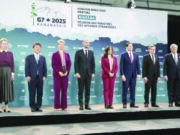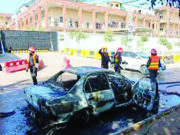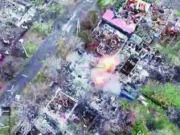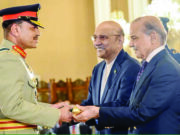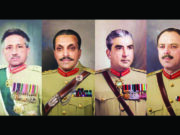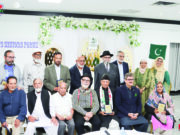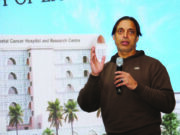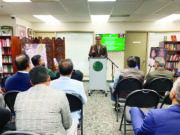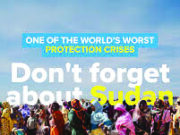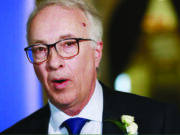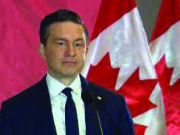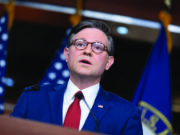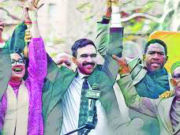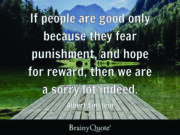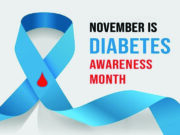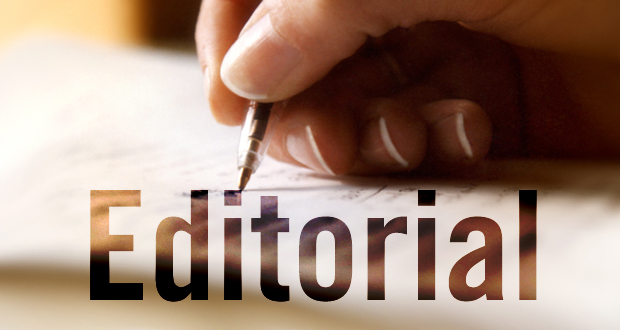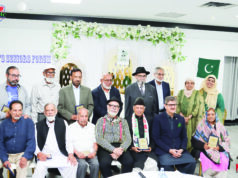These days, all forms of media, whether social or print, are extensively discussing the personality of Zohran Mamdani, and his New York, USA Mayoral election victory on Nov 4, 2025 is being regarded as historically significant. A child born in 1991 in Kampala, Uganda, to parents of Indian origin, achieving such historic prominence was something few could have imagined.
Zohran’s father, Mahmood Mamdani, is a distinguished scholar who has contributed to the fields of international relations, anthropology, and political science. His mother, Mira Nair, is an acclaimed Indian-origin filmmaker known for her work on global themes. Both parents are Indian by heritage, his mother from Punjab and his father from the Gujarati Indian Muslim community. Zohran spent part of his early childhood in Kampala before the family relocated to Cape Town, South Africa, and later, when he was around seven, to New York. He received his education in New York and graduated from The Bronx High School of Science, later earning a bachelor’s degree in Africana Studies from Brunswick, Maine College.
Zohran grew up in diverse cultural and ethnic settings including Uganda, India, South Africa, and the United States. A Shia Muslim by faith, he obtained American citizenship in 2018. His political struggle at such a young age holds historic weight. He never concealed his Muslim identity; instead, he consistently expressed pride in it.
In essence, Zohran Mamdani’s success was not just an election campaign. It was the result of sustained efforts in community organization, understanding longstanding challenges, and building a strong platform for addressing local issues. The active participation of the Muslim community became an integral part of his identity and success, ultimately leading to his historic victory. For a major city like New York, the election of a Muslim, Indian-origin, African-born individual as mayor represents an extraordinary achievement for the Muslim community. It demonstrates that with persistence and collective community engagement, meaningful political break throughs are possible.
Like many elections, this one also saw a political wave that candidates managed to capitalize on. During Mamdani’s race, when at that time former President Trump began posting comments online, circumstances shifted. Mamdani benefitted from this moment, gaining support from those disillusioned with Trump’s potential return to power and his policies. This, too, became an advantage for Mamdani.
The Muslim community in Canada can draw important lessons from this experience. For the municipal elections scheduled in BC on October 17, 2026, including mayoral, council, and school trustee positions, planning must begin now. Identifying district-level seat distribution, shaping a strong electoral strategy, and selecting qualified candidates are essential steps. It is equally important to train the younger generation in local, provincial, and eventually federal politics to prepare them for future leadership roles.
Over the past two decades in Canada, it has often been observed that during provincial, civic, or federal elections, the public becomes dissatisfied with certain policies of the incumbent government.
Candidates in upcoming elections adopt these issues as slogans or campaign themes, and this often benefits them. For example, Justin Trudeau rose to power in 2015 in opposition to Stephen Harper and remained Prime Minister until 2024. Later, amid a growing campaign against Trudeau, Mark Carney also gained advantage and became Prime Minister. Clearly, political waves play a decisive role in elections. In the upcoming city elections, despite the powers held by current boards and mayors, law and order has deteriorated in many cities, and this is likely to become a major issue in BC. New political groups will certainly attempt to capitalize on this trend.
Past elections have shown that candidates who manage to secure votes often do not return in the next cycle due to a lack of time or financial resources. This is where the community must step in: to support such candidates, rebuild their foundation, and ensure long-term political influence.
There is a pressing need to collaborate with various organizations, develop a practical and strategic plan, and provide financial and organizational support so that the community can achieve meaningful and lasting results. Whether in mosques or community gatherings, it must be emphasized that political participation and securing seats in legislative bodies are essential for the community’s progress. Preparing the path for future generations is a responsibility we all share.
These experiences collectively show that success is attainable only through dedication, consistency, and active community involvement. If clear planning and proper allocation of resources begin now, strong and influential Muslim leadership can emerge in British Columbia, ensuring significant achievements in the coming elections.
We have no shortage of capable and hardworking individuals.
Prospective candidates must begin their efforts immediately, work closely with the community, and build a coherent and sustainable action plan. With consistent commitment and strong community support, political success is very much within reach.
We all know that our vote bank is strong, but how it is utilized requires thoughtful planning, and this planning should begin not later but today. Given the current and future circumstances, it is essential that we secure representation in legislative bodies and participate actively in the policy decisions that can further strengthen our community. May God be protector and guide. Ameen.
“Waan Laysa Lil
Insana illa ma’ sa’aa “
That man can have nothing but what he strives for.
Home LOCAL Editorial Is it possible to develop strong and influential leadership for the Civic 2026 elections...
